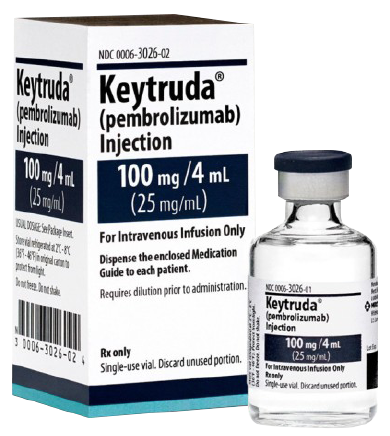
Pembrolizumab is a monoclonal antibody that binds to the PD-1 receptor and blocks its interaction with PD-L1 and PD-L2, releasing PD-1 pathway-mediated inhibition of the immune response, including the anti-tumor immune response. In animal models, blocking PD-1 activity resulted in decreased tumor growth.
Pembrolizumab is indicated for the treatment of patients with a wide variety of cancers, including melanoma, non-small cell lung cancer, head and neck squamous cell cancer, and Hodgkin's lymphoma. It is indicated for the treatment of adult and pediatric patients with unresectable or metastatic, microsatellite instability-high (MSI-H) or mismatch repair deficient colorectal cancer that has progressed following treatment with a fluoropyrimidine, oxaliplatin, and irinotecan.
The most common adverse reactions that occurred in 20% or more of patients treated with single-agent pembrolizumab in clinical trials included fatigue, musculoskeletal pain, decreased appetite, pruritus, diarrhea, nausea, rash, pyrexia, cough, dyspnea, constipation, pain, and abdominal pain.
